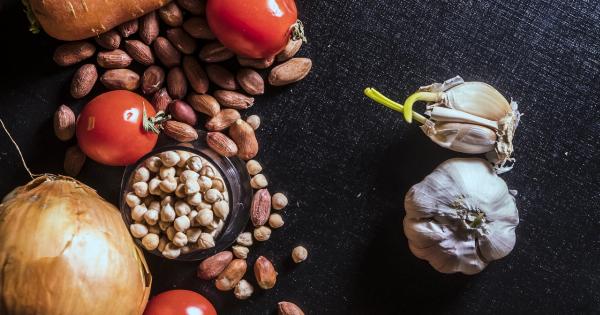As people age, they may experience muscle loss, decreased muscle mass, or sarcopenia. Eating a well-balanced diet is an important part of maintaining muscle mass, and it can also protect muscle from age-related decline.
Incorporating fruits and vegetables into your diet can help you maintain a healthy weight and prevent muscle loss. In this article, we will explore some healthy fruits and vegetables that can help protect your muscles.
Blueberries
Blueberries are high in antioxidants and are known as “superfoods.” They are also an excellent source of fiber, vitamin C, vitamin K, and manganese. All of these vitamins and minerals contribute to healthy muscle function.
Blueberries can help reduce oxidative stress and inflammation in muscles, which can prevent age-related muscle decline. Additionally, they may also help promote the growth of new muscle tissue.
Spinach
Spinach is a leafy green vegetable that is packed with nutrients. It is one of the best sources of dietary nitrate, which can improve muscle function. Nitrate helps increase circulation, which can improve muscle performance during exercise.
Additionally, spinach is also an excellent source of iron, vitamin K, and vitamin A, which are all important for maintaining healthy muscle tissue.
Sweet potatoes
Sweet potatoes are a great source of complex carbohydrates, which can provide long-lasting energy. They are also high in vitamin A, which helps maintain healthy skin, immune function, and muscle tissue.
Additionally, sweet potatoes are an excellent source of potassium, which helps regulate muscle function and nerve signaling.
Broccoli
Broccoli is a cruciferous vegetable that is packed with nutrients. It is high in vitamin C, vitamin K, and fiber. Additionally, broccoli contains sulforaphane, a compound that has been shown to improve muscle function and prevent muscle damage.
Sulforaphane works by reducing inflammation and oxidative stress in muscle tissue.
Bananas
Bananas are an excellent source of potassium and magnesium, two minerals that play a crucial role in muscle function. Potassium helps regulate muscle contractions, while magnesium can help reduce muscle soreness and improve muscle recovery.
Bananas are also a good source of carbohydrates, which can provide energy for workouts.
Tomatoes
Tomatoes are a rich source of lycopene, an antioxidant that can help reduce inflammation and oxidative stress in muscle tissue. Lycopene has also been shown to improve muscle function and reduce muscle damage.
Additionally, tomatoes are high in vitamin C and potassium, two nutrients that are important for maintaining healthy muscles.
Oranges
Oranges are an excellent source of vitamin C, an antioxidant that can help reduce inflammation and improve muscle function.
Additionally, vitamin C plays a critical role in collagen synthesis, which is essential for maintaining healthy bones, tendons, and ligaments. Oranges are also high in potassium and fiber, both of which are important for maintaining healthy muscles.
Avocado
Avocado is a nutrient-dense fruit that is high in healthy fats, fiber, and potassium. Healthy fats are important for maintaining healthy hormone levels, which can help prevent muscle loss.
Avocado also contains vitamin E, which has been shown to improve muscle function and reduce muscle damage. Additionally, avocado is a good source of magnesium, which can help reduce muscle soreness and improve muscle recovery.
Cauliflower
Cauliflower is a cruciferous vegetable that is high in fiber, vitamin C, and vitamin K. It is also a good source of choline, a nutrient that is important for maintaining healthy muscle function.
Choline helps regulate muscle contractions and can improve muscle endurance. Additionally, cauliflower contains sulforaphane, a compound that can improve muscle function and prevent muscle damage.
Carrots
Carrots are a good source of beta-carotene, an antioxidant that can help reduce inflammation and oxidative stress in muscle tissue. Beta-carotene has also been shown to improve muscle function and reduce muscle damage.
Additionally, carrots are high in fiber and potassium, two nutrients that are important for maintaining healthy muscles.
Conclusion
Eating a diet that is rich in fruits and vegetables is important for maintaining healthy muscles. Incorporating these 10 healthy fruits and vegetables into your diet can help protect your muscles from age-related decline.
It is also important to combine a healthy diet with regular exercise and strength training. By doing so, you can help maintain muscle mass and function as you age.































